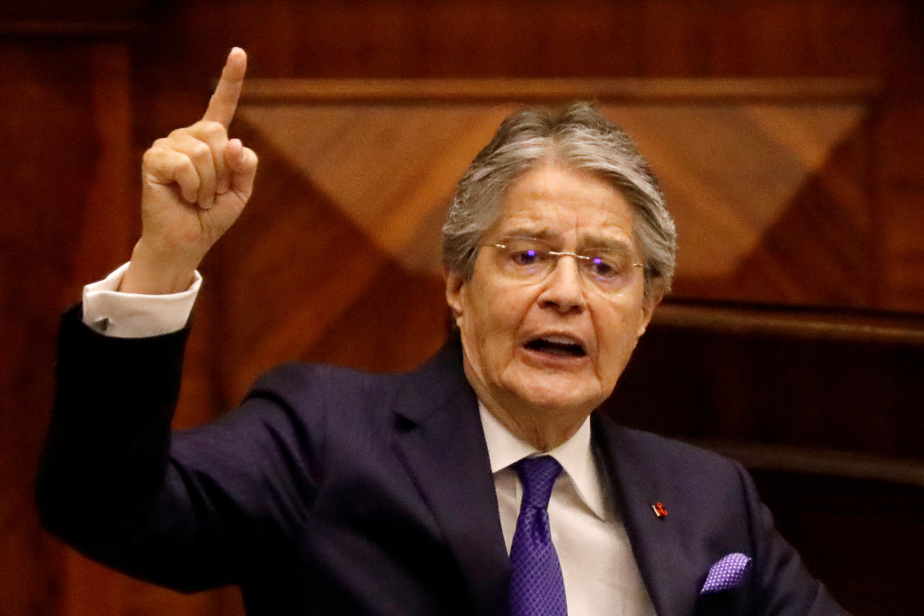(Quito) Threatened by impeachment proceedings for corruption, Ecuadorian President Guillermo Lasso dissolved Parliament on Wednesday on the grounds of a “serious political crisis”, leading to early elections from which the opposition could however emerge stronger.
The conservative head of state, targeted by an impeachment trial which opened on Tuesday before Parliament where the left is in the majority, decided to “dissolve the National Assembly because of the serious political crisis and internal unrest”, indicates a press release issued by its services.
The unpopular president, who came to power in May 2021, is accused by the opposition of embezzlement in the context of a public contract for the transport of crude oil. He is accused of having been aware of this contract detrimental to the country and of not having intervened at the beginning of his mandate to put an end to it.
Mr. Lasso, a 67-year-old former banker, however, is not being prosecuted in connection with this case. At the opening of his impeachment trial, he pleaded to deputies his “total, evident and incontestable innocence”.
In the wake of the announcement of the dissolution of Parliament, Mr. Lasso asked the National Electoral Council (CNE) to call early legislative and presidential elections, as provided for in the Constitution.
“It is a democratic decision not only because it is constitutional, but also because it gives the Ecuadorian people the possibility to decide,” Guillermo Lasso told national television.
Former President Rafael Correa (2007-2017), leader of the opposition despite being sentenced to eight years in prison in absentia for corruption, and in exile in Belgium, described Mr. Lasso’s decision as “illegal” and of a “coup”, believing that it was also “the final nail in his own political coffin”.
Mr. Lasso will be able to govern until the installation of the new National Assembly by issuing economic emergency decree laws, but after a favorable opinion from the Constitutional Court.
At dawn, the parliament building was guarded by military and police, while around the presidential palace in the historic center of Quito there were more uniformed officers than usual, AFP found.
“The Armed Forces and the National Police maintain and will unfailingly maintain their posture of absolute respect for the Constitution,” said General Nelson Proaño, head of the Joint Command of the Ecuadorian Armed Forces, in a video released by the Ministry of Defense.
This is the first time that a Head of State has used this right of dissolution, a provision which can only be activated once during the first three years of the mandate.
However, it could benefit the opposition. “The right-wing movement is weakened by a government that has less than 15% credibility,” said political scientist Santiago Cahuasqui of the private SEK University. “The center and left movements could have more possibilities and perspectives,” he said.
Even if the left does not win the presidency, “one thing is certain: its deputies, who are currently 49 out of 137, will win more seats”, constitutionalist Rafael Oyarte assured Tuesday, considering the possibility that Mr. Lasso would dissolve the parliament.
Last June, MPs had already tried to impeach Mr. Lasso amid violent indigenous protests against the rising cost of living, but fell short of 12 votes to succeed.
“Lacking the necessary votes to save himself from imminent impeachment, Lasso carries out a cowardly self-coup with the help of the police and the armed forces, without the support of the citizens”, reacted on Twitter Leonidas Iza, leader of the powerful Conaie indigenous organization.
The country, which experienced great political instability between 1997 and 2005, a period during which three presidents were overthrown by popular revolts, has also been confronted for months with a wave of violence due to a power struggle between gangs. involved in drug trafficking.

